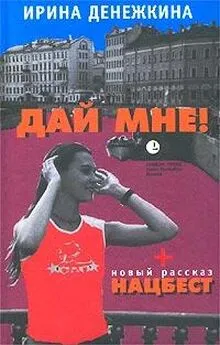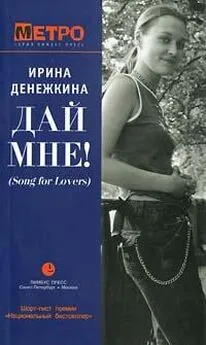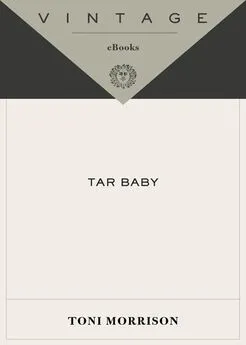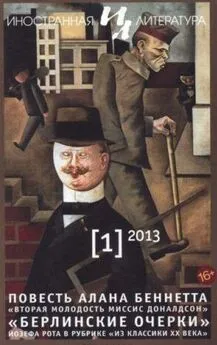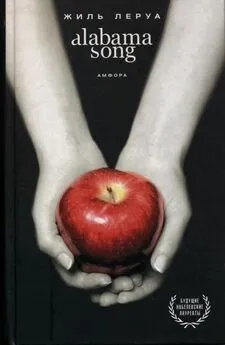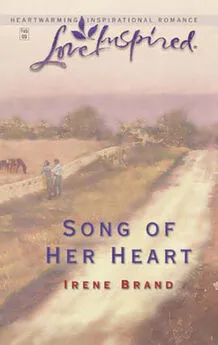Toni Morrison - Song of Solomon
- Название:Song of Solomon
- Автор:
- Жанр:
- Издательство:неизвестно
- Год:неизвестен
- ISBN:нет данных
- Рейтинг:
- Избранное:Добавить в избранное
-
Отзывы:
-
Ваша оценка:
Toni Morrison - Song of Solomon краткое содержание
Song of Solomon - читать онлайн бесплатно полную версию (весь текст целиком)
Интервал:
Закладка:
Guitar, being older and already in high school, had none of the reluctance that his young buddy still struggled with, and was the first one to speak.
“Hi.”
The woman looked up. First at Guitar and then at Milkman.
“What kind of word is that?” Her voice was light but gravel-sprinkled. Milkman kept on staring at her fingers, manipulating the orange. Guitar grinned and shrugged. “It means hello.”
“Then say what you mean.”
“Okay. Hello.”
“That’s better. What you want?”
“Nothin. We just passin by.”
“Look like you standin by.”
“If you don’t want us here, Miss Pilate, we’ll go.” Guitar spoke softly.
“I ain’t the one with the wants. You the one want something.”
“We wanna ask you something.” Guitar stopped feigning indifference. She was too direct, and to keep up with her he had to pay careful attention to his language.
“Ask it.”
“Somebody said you ain’t got no navel.”
“That the question?”
“Yes.”
“Don’t sound like a question. Sound like an answer. Gimme the question.”
“Do you?”
“Do I what?”
“Do you have a navel?”
“No.”
“What happened to it?”
“Beats me.” She dropped a bright peeling into her lap and separated an orange section slowly. “Now do I get to ask a question?”
“Sure.”
“Who’s your little friend?”
“This here’s Milkman.”
“Do he talk?” Pilate swallowed a piece of the fruit.
“Yeah. He talk. Say something.” Guitar shoved an elbow at Milkman without taking his eyes off Pilate.
Milkman took a breath, held it, and said, “Hi.”
Pilate laughed. “You all must be the dumbest unhung Negroes on earth. What they telling you in them schools? You say ‘Hi’ to pigs and sheep when you want ’em to move. When you tell a human being ‘Hi,’ he ought to get up and knock you down.”
Shame had flooded him. He had expected to feel it, but not that kind; to be embarrassed, yes, but not that way. She was the one who was ugly, dirty, poor, and drunk. The queer aunt whom his sixth-grade schoolmates teased him about and whom he hated because he felt personally responsible for her ugliness, her poverty, her dirt, and her wine.
Instead she was making fun of his school, of his teachers, of him. And while she looked as poor as everyone said she was, something was missing from her eyes that should have confirmed it. Nor was she dirty; unkempt, yes, but not dirty. The whites of her fingernails were like ivory. And unless he knew absolutely nothing, this woman was definitely not drunk. Of course she was anything but pretty, yet he knew he could have watched her all day: the fingers pulling thread veins from the orange sections, the berry-black lips that made her look as though she wore make-up, the earring…. And when she stood up, he all but gasped. She was as tall as his father, head and shoulders taller than himself. Her dress wasn’t as long as he had thought; it came to just below her calf and now he could see her unlaced men’s shoes and the silvery-brown skin of her ankles.
She held the peelings precisely as they had fallen in her lap, and as she walked up the steps she looked as though she were holding her crotch.
“Your daddy wouldn’t like that. He don’t like dumb peoples.” Then she looked right at Milkman, one hand holding the peelings, the other on the doorknob. “I know your daddy. I know you too.”
Again Guitar spoke up. “You his daddy’s sister?”
“The only one he got. Ain’t but three Deads alive.”
Milkman, who had been unable to get one word out of his mouth after the foolish “Hi,” heard himself shouting: “I’m a Dead! My mother’s a Dead! My sisters. You and him ain’t the only ones!”
Even while he was screaming he wondered why he was suddenly so defensive—so possessive about his name. He had always hated that name, all of it, and until he and Guitar became friends, he had hated his nickname too. But in Guitar’s mouth it sounded clever, grown up. Now he was behaving with this strange woman as though having the name was a matter of deep personal pride, as though she had tried to expel him from a very special group, in which he not only belonged, but had exclusive rights.
In the heartbeat of silence that followed his shouts, Pilate laughed.
“You all want a soft-boiled egg?” she asked.
The boys looked at each other. She’d changed rhythm on them. They didn’t want an egg, but they did want to be with her, to go inside the wine house of this lady who had one earring, no navel, and looked like a tall black tree.
“No, thanks, but we’d like a drink of water.” Guitar smiled back at her.
“Well. Step right in.” She opened the door and they followed her into a large sunny room that looked both barren and cluttered. A moss-green sack hung from the ceiling. Candles were stuck in bottles everywhere; newspaper articles and magazine pictures were nailed to the walls. But other than a rocking chair, two straight-backed chairs, a large table, a sink and stove, there was no furniture. Pervading everything was the odor of pine and fermenting fruit.
“You ought to try one. I know how to do them just right. I don’t like my whites to move, you know. The yolk I want soft, but not runny. Want it like wet velvet. How come you don’t just try one?”
She had dumped the peelings in a large crock, which like most everything in the house had been made for some other purpose. Now she stood before the dry sink, pumping water into a blue-and-white wash basin which she used for a saucepan.
“Now, the water and the egg have to meet each other on a kind of equal standing. One can’t get the upper hand over the other. So the temperature has to be the same for both. I knock the chill off the water first. Just the chill. I don’t let it get warm because the egg is room temperature, you see. Now then, the real secret is right here in the boiling. When the tiny bubbles come to the surface, when they as big as peas and just before they get big as marbles. Well, right then you take the pot off the fire. You don’t just put the fire out; you take the pot off. Then you put a folded newspaper over the pot and do one small obligation. Like answering the door or emptying the bucket and bringing it in off the front porch. I generally go to the toilet. Not for a long stay, mind you. Just a short one. If you do all that, you got yourself a perfect soft-boiled egg.
“I remember the messes I used to make for my father when I cooked. Your father”—she directed a thumb at Milkman—“he couldn’t cook worth poot. Once I made a cherry pie for him, or tried to. Macon was a nice boy and awful good to me. Be nice if you could have known him then. He would have been a real good friend to you too, like he was to me.”
Her voice made Milkman think of pebbles. Little round pebbles that bumped up against each other. Maybe she was hoarse, or maybe it was the way she said her words, with both a drawl and a clip. The piny-winy smell was narcotic, and so was the sun streaming in, strong and unfettered because there were no curtains or shades at the windows that were all around the room, two in each of three walls, one on each side of the door, one on either side of the sink and the stove, and two on the farther wall. The fourth wall must back on the bedrooms, Milkman thought. The pebbly voice, the sun, and the narcotic wine smell weakened both the boys, and they sat in a pleasant semi-stupor, listening to her go on and on….
“Hadn’t been for your daddy, I wouldn’t be here today. I would have died in the womb. And died again in the woods. Those woods and the dark would have surely killed me. But he saved me and here I am boiling eggs. Our papa was dead, you see. They blew him five feet up into the air. He was sitting on his fence waiting for ‘em, and they snuck up from behind and blew him five feet into the air. So when we left Circe’s big house we didn’t have no place to go, so we just walked around and lived in them woods. Farm country. But Papa came back one day. We didn’t know it was him at first, cause we both saw him blowed five feet into the air. We were lost then. And talking about dark! You think dark is just one color, but it ain’t. There’re five or six kinds of black. Some silky, some woolly. Some just empty. Some like fingers. And it don’t stay still. It moves and changes from one kind of black to another. Saying something is pitch black is like saying something is green. What kind of green? Green like my bottles? Green like a grasshopper? Green like a cucumber, lettuce, or green like the sky is just before it breaks loose to storm? Well, night black is the same way. May as well be a rainbow.
“Now, we lost and there was this wind and in front of us was the back of our daddy. We were some scared children. Macon kept telling me that the things we was scared of wasn’t real. What difference do it make if the thing you scared of is real or not? I remember doing laundry for a man and his wife once, down in Virginia. The husband came into the kitchen one afternoon shivering and saying did I have any coffee made. I asked him what was it that had grabbed hold of him, he looked so bad. He said he couldn’t figure it out, but he felt like he was about to fall off a cliff. Standing right there on that yellow and white and red linoleum, as level as a flatiron. He was holding on to the door first, then the chair, trying his best not to fall down. I opened my mouth to tell him wasn’t no cliff in that kitchen. Then I remembered how it was being in those woods. I felt it all over again. So I told the man did he want me to hold on to him so he couldn’t fall. He looked at me with the most grateful look in the world. ‘Would you?’ he said. I walked around back of him and locked my fingers in front of his chest and held on to him. His heart was kicking under his vest like a mule in heat. But little by little it calmed down.”
“You saved his life,” said Guitar.
“No such thing. His wife come in before it was time to let go. She asked me what I was doing and I told her.”
“Told her what? What’d you say?”
“The truth. That I was trying to keep him from falling off a cliff.”
“I bet he wished he had jumped off then. She believe you? Don’t tell me she believed you.”
“Not right away she didn’t. But soon’s I let go he fell dead-weight to the floor. Smashed his glasses and everything. Fell right on his face. And you know what? He went down so slow. I swear it took three minutes, three whole minutes to go from a standing upright position to when he mashed his face on the floor. I don’t know if the cliff was real or not, but it took him three minutes to fall down it.”
“Was he dead?” asked Guitar.
“Stone dead.”
“Who shot your daddy? Did you say somebody shot him?” Guitar was fascinated, his eyes glittering with lights.
“Five feet into the air…”
“Who?”
“I don’t know who and I don’t know why. I just know what I’m telling you: what, when, and where.”
“You didn’t say where.” He was insistent.
“I did too. Off a fence.”
“Where was the fence?”
“On our farm.”
Guitar laughed, but his eyes were too shiny to convey much humor. “Where was the farm?”
“Montour County.”
He gave up on “where.” “Well, when then?”
“When he sat there—on the fence.”
Guitar felt like a frustrated detective. “What year?”
“The year they shot them Irish people down in the streets. Was a good year for guns and gravediggers, I know that.” Pilate put a barrel lid on the table. Then she lifted the eggs from the wash basin and began to peel them. Her lips moved as she played an orange seed around in her mouth. Only after the eggs were split open, revealing moist reddish-yellow centers, did she return to her story. “One morning we woke up when the sun was nearly a quarter way cross the sky. Bright as anything. And blue. Blue like the ribbons on my mother’s bonnet. See that streak of sky?” She pointed out the window. “Right behind them hickories. See? Right over there.”
Читать дальшеИнтервал:
Закладка:

